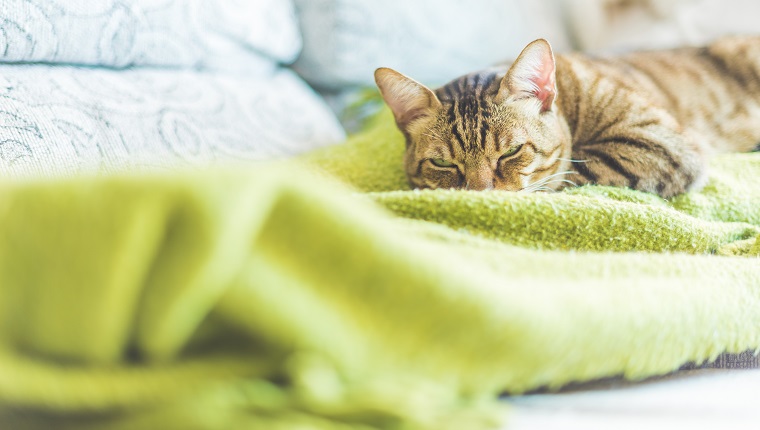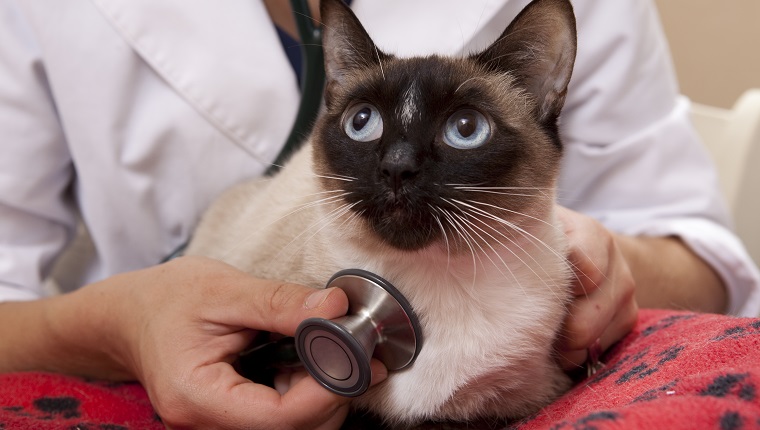Upper respiratory infection in cats can refer to a number of conditions that affect the cat’s sinuses, nose, and throat. These infections are generally viral or bacterial in nature and can be very contagious.
Upper respiratory infection in cats is also called “feline upper respiratory disease complex.” If you see signs of an infection in your cat, then you must get to a veterinarian for a proper diagnosis and treatment.
Here’s what you should know about the symptoms, causes, and treatments for upper respiratory infection in cats.
Symptoms Of Upper Respiratory Infection In Cats
Symptoms of upper respiratory infections in cats are wide and varied.
Some of the most likely symptoms include:
- Sneezing and coughing
- Runny nose (possibly with discharge)
- Lower appetite and weight loss
- Eye discharge
- Fever
- Ulcers in the mouth
Causes Of Upper Respiratory Infection In Cats

The cause of upper respiratory infection in cats is usually a viral infection. Some of the most common viral infections in cats include:
- Feline Calicivirus (also known as FCV)
- Feline Herpesvirus (also known as FHV)
- Reovirus
Bacterial infections can also cause upper respiratory infections in cats. Some of the most common bacterial infections in cats include:
- Chlamydophila Felis
- Bordetella Bronchiseptica
- Pasteurella
Due to the contagious nature of many upper respiratory infections, the condition often spreads quickly in situations where many cats share the same living space.
Treatments For Upper Respiratory Infection In Cats
If your vet suspects your cat has an upper respiratory infection, they’ll first perform a physical exam and ask questions about the cat’s medical history and behavior.
Based on an initial evaluation, they may order further tests depending on the likely cause of the upper respiratory infection. This may include swabbing the cat’s mouth or eyes and sending the samples to a laboratory for further analysis.
Depending on the root cause of the infection, your vet might also prescribe medication. If they prescribe antibiotics, it’s imperative that you follow the correct dosage and complete the full course of medication.
Vets may also use fluids and feeding tubes if infections result in significant weight loss or dehydration.
While your cat recovers from an upper respiratory infection at home, it’s important to isolate them from any other felines in the household. Vets also recommend providing as much of a relaxing and stress-free environment as possible.
Has your cat ever suffered from an upper respiratory infection? How did your vet treat it? Let us know in the comments below!









